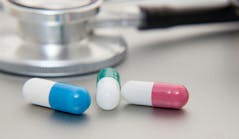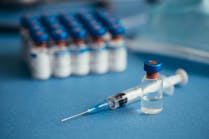Supply shortages are impacting COVID-19 and non-COVID testing
The American Society for Microbiology (ASM) announced it has partnered with the Association of Supply Chain Management to develop a survey to collect testing supplies status for both COVID-19 tests as well as other microbiological tests to highlight, and ultimately alleviate, these debilitating supply chain issues.
Starting September 11, ASM began independently collecting shortage data directly from clinical labs, which allows us to draw attention to the data provided by laboratory directors and practicing clinical microbiologists without external influence. We will collect this data over the course of 6 weeks and share our findings each week on the most recent shortages of medium, reagents, collection devices and consumables that are significantly impacting day-to-day testing for both COVID-19 and other infectious diseases, along with week-over-week longitudinal changes.
127 CLIA-certified labs have responded to the survey and report running at an average of 42.8 percent testing capacity for COVID-19. As a subset of clinical microbiology labs in the U.S., this data highlights that supply shortage is still an ongoing concern. If you are a member of a clinical microbiology lab and would like to get involved in our data collection efforts, please email us for details. All information provided will be confidential for one year.
The results also show:
· 50.0 percent of labs have a shortage of commercial testing kits for SARS-CoV-2.
· 30.0 percent of labs have a shortage of non-COVID-19 testing supplies for detection of routine bacteria (including the bacteria causing strep throat, pneumonia, bronchitis and urinary tract infections).
· 42.9 percent of labs have a shortage of supplies for the molecular detection of sexually transmitted infections.
· 28.6 percent have a shortage of supplies for mycobacteria testing (including supplies for tuberculosis (TB), Buruli ulcer and pulmonary nontuberculous mycobacterial disease testing).
· 50.0 percent of labs have a shortage of supplies for routine fungal testing (ranging from superficial, localized skin conditions to deeper tissue infections to serious lung, blood (septicemia) or systemic diseases).





